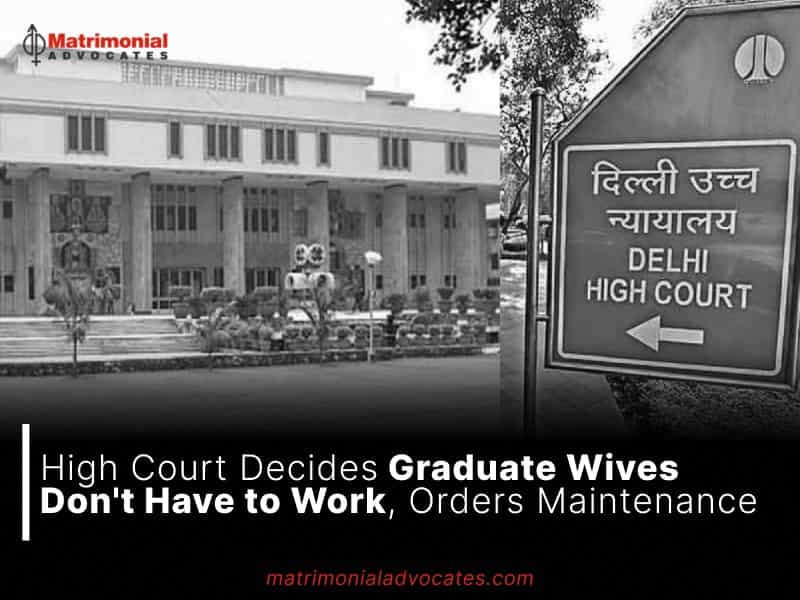
The Delhi High Court recently adjudicated a petition seeking a reduction in monthly interim maintenance payments from ₹25,000 to ₹15,000. This petition was predicated upon the wife’s possession of a B.Sc. degree. In its verdict, the court reinforced the fundamental legal principle that the mere possession of academic qualifications, in this case, a B.Sc. degree, does not per se impose a legal obligation for gainful employment. Furthermore, the court explicitly underscored the impropriety of presuming that the spouse is deliberately abstaining from seeking employment solely to secure maintenance payments from the estranged partner.
Presiding over the case, Justice Suresh Kumar Kait acknowledged the wife’s graduate status while concurrently observing her current lack of gainful employment. As a result, the court concluded that there existed no justifiable legal basis to modify the interim maintenance order previously established by the family court.
“No inference can be drawn that merely because the wife is holding a degree of graduation, she must be compelled to work. It can also not be presumed that she is intentionally not working solely with an intent to claim interim maintenance from the husband,” said the bench, also comprising Justice Neena Bansal Krishna, in a recent order.
After due and deliberate consideration, the court declined the wife’s petition for an increase in the maintenance amount. The court found her unable to establish valid justifications for such an adjustment and deemed the family court’s prior assessment of her and her son’s financial needs as equitable.
Conversely, the court rescinded the daily punitive fine of ₹1,000 imposed upon the husband for his delayed interim maintenance payments, replacing it with an order for the husband to pay interest at a rate of 6 percent per annum to the wife for the delayed disbursement of interim maintenance.
Furthermore, the court annulled the daily penalty of ₹550 that had previously been enforced for delays in the payment of litigation expenses.





